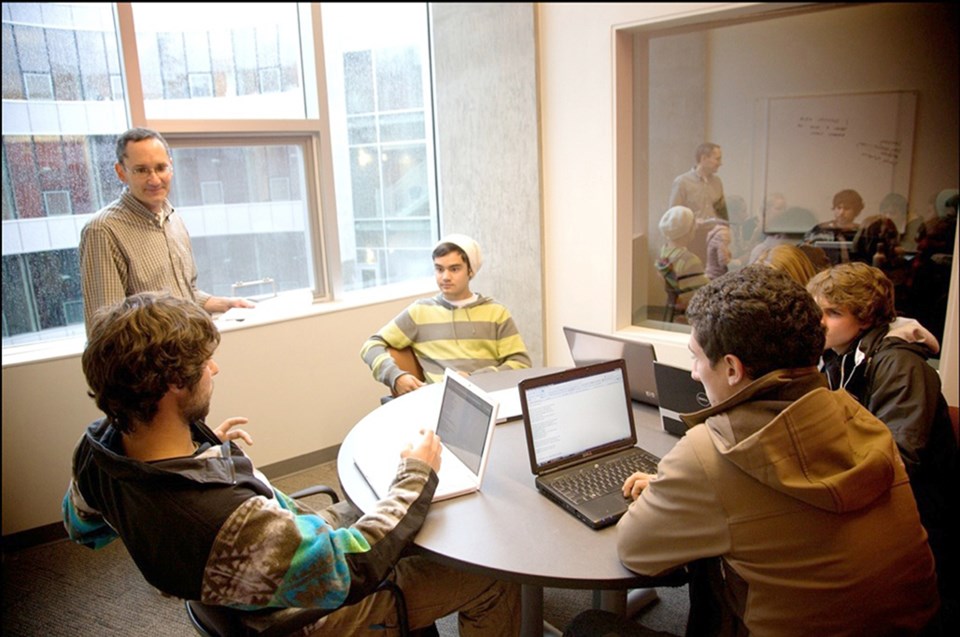With the federal election campaign in full swing, The Squamish Chief met up with Quest University instructor and elections expert Eric Gorham to get the inside scoop before casting ballots on Oct. 19.
Q: Should Squamish voters be paying attention to their local candidates or just to the national party campaigns?
A: Local candidates can still make a difference. You can have private member’s bills. If they get into office, they can still make their way and suggest bills. Local candidates also potentially, depending on what happens in the election, can go from back bench to front bench, and so you have more prominent local candidates who might be able to ascertain more benefits to the riding, were they to increase their power within the party.
Local candidates still provide the bridge between the federal government in Ottawa. So it is in the interest to folks in the Sea to Sky riding to have candidates who can secure government funds for whatever is needed locally – attracting foreign trade to the area, for example.
Q: What should the average voter be paying attention to right now in the lead up to the election?
A: I would love to say that the average voter should be paying attention to the issues, and I am hoping that there are certain issues that at least the average voter is interested in. In terms of the media coverage and how that is all constructed, the most common story frame in North America is the horse race; who’s winning and losing on the campaign trail. That doesn’t really help voters decide who to vote for.
Q: Then how do voters in Squamish get to the issues?
A: Take my course first. But also, I think it is important for voters to be proactive in getting the information they want. So that means trying to find issue information not so much from party websites but from varied and diverse news sources. Look at a lot of articles – even just the first three or four paragraphs of each article. In-depth analysis is great, but a lot of people just don’t have the time.
Q: In the week before the election was officially called, Conservative MPs announced about $4 billion worth of government projects, according to The Ottawa Citizen. Does that kind of spending before an election call work with voters?
A: Many voters vote with their pocketbooks. Political science research has shown that the life-changing event that leads younger people into voting… is not graduating from high school, it is not getting married or having children, it is buying a house and having a mortgage. Suddenly they care about local politics; suddenly they care about the fortunes of the economy.
Q: Should voters put much stock in the door-knocking by candidates?
A: They are great opportunities for citizens to have one-on-one conversations with candidates about issues they care about, so I would tell them to take that seriously. A lot of political science research would suggest that face-to-face isn’t going to convert a lot of people from one candidate to another. It will, for a very short period of time; [for example] if the candidates got to those people five hours before the election was held, they might find it to be very successful. But people hold to their parties and hold to certain ideas fairly tightly, so it is hard to sway.
Q: Many people are third and fourth-generation supporters of a particular party. Are Canadians more attached to their family political party than people in the U.S.?
A: It is similar. In both cases it has changed a little bit in part because we’re immigrant societies, so we have new people coming here all the time anyway, and these new people are not necessarily aligned with one party or another because they don’t have family members who lived here before.
New media techniques can also make a difference and, curiously enough, we are moving away from mass media towards social media and this individualized, targeted media. Literally, people can identify you as a certain kind of voter and then just plug advertisement after advertisement at you on your iPhone. At the same time, television is way more fragmented so campaigns can target certain kinds of people based on what they are watching.
Q: Should voters worry about vote splitting or should the focus be on getting those who didn’t vote last time out to the polls?
A: The fact that the Canadian voter turnout is 58 to 62 per cent is not great, but there is a problem with the split vote…. To be frank, the New Democratic Party got in in Alberta because the right split the vote; you had the Progressive Conservative Association and the Wildrose Alliance Party. That just permitted the NDP to come in.
Q: How should people vote if they want to vote strategically?
A: Honestly, if you want to vote strategically, there is no point in even paying attention until the last poll before the election takes place, which I think is about 48 hours before. Because between now and then, so many things can happen that if you are just voting strategically, you just want to know who that last poll is going for.
But there are people who want to vote for issues and want to vote from their heart and what is important to them. That is where they have to keep abreast of the news and abreast of the issues and how the candidates are responding to the significant local and federal and international issues.
Gorham’s A User’s Guide to North American Elections continuing education course starts Oct. 15. For more information go to Questu.ca/continuing-education.



